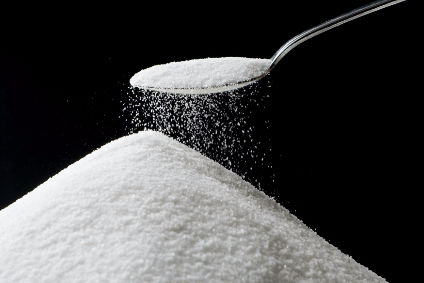
Regulation – or the possibility of it – on the sector dominated the week’s headlines. After the UK announced plans to tax sugary drinks, we looked at the possible on the country’s food sector. In the US, the country’s Senate blocked a bill for voluntary GMO labelling. And in France, the country’s lower house voted for a hike in the tax on palm oil. Click on the links to the read the stories in more detail.
“It feels like this is slightly separate from the childhood obesity strategy. The lead on the child obesity strategy was coming very much from Downing Street and from the Prime Minister. It feels at odds with the child obesity strategy, and I think actually this is the Chancellor looking at this and saying ‘this is a good idea, I’m just going to get on and do it'” – Ben Reynolds, deputy coordinator at UK food and farming pressure group Sustain, reflects on the decision to introduce a tax on sugary drinks in the UK – as we consider what the impact could be on the country’s food sector.

Discover B2B Marketing That Performs
Combine business intelligence and editorial excellence to reach engaged professionals across 36 leading media platforms.
“If we do not act, everyone loses. I have acted to provide a responsible, enforceable, scientific and proactive approach to arm consumers with the information they want to make informed choices about what to put on the dinner table. But most important, I respect the work of our farmers and ranchers that produce the food and fibre to feed a troubled and hungry world” – US Senator Pat Roberts insists federal legislation is necessary to tackle the issue of GMO labelling after a bill that would require voluntary labelling of GMOs fails to obtain the necessary votes to advance in the Senate.
“We don’t want to boycott these two countries nor palm oil” – French MP Barbara Pompili during the debate in the country’s lower house to raise the tax on palm oil – though the hike supported by the National Assembly will be lower than that called for by its upper house.
“Building the largest yoghurt manufacturing plant in the world and expanding it three years later is a really proud moment for us and an example of how right it was to pick Idaho as our second home.Our success in Idaho and New York is an example of the power and strength of US manufacturing. To food companies like ours, it’s a signal of the momentum of the food movement that we started: better food for more people” – Hamdi Ulukaya, chairman and CEO of Chobani, on plans to enter Mexico and Puerto Rico as it announces a “major expansion” to its plant in Twin Falls.
“Our plan is to dial back the losses. We are gaining market share if we weren’t experiencing losses so our major focus is to dial back those losses to a more reasonable number and to have sustainable development in wins over losses” – Aryzta CEO Owen Killian insists the bakery group has a plan in place to overcome weakness in the North America market.

US Tariffs are shifting - will you react or anticipate?
Don’t let policy changes catch you off guard. Stay proactive with real-time data and expert analysis.
By GlobalData“Despite operating in a challenging market, we have created a group that is well positioned to flourish in an improving environment and we look forward to benefiting from increased consumer confidence. Having built solid foundations and implemented a robust growth strategy that aims to create sustainable value for our stakeholders, we look forward to driving further growth both organically and through strategic M&A” – Finsbury Food Group CEO John Duffy after the firm reports improved half-year results, boosted by the recent acquisitions of Fletchers Group and Johnstone’s but also from the benefit of underlying growth.
“Over the years, Gold Seal Indus Valley and Rozana have become household names in the rice category across the overseas markets in which they operate. The brands enjoy strong equity and have been delighting consumers through a range of high quality offerings in basmati rice. Given the context of our portfolio priorities, we believe that it is in the best interest of the business to sell these brands to a strategic player such as LT Foods, who is capable and well positioned to unlock their full potential” – Sanjiv Mehta, CEO and managing director of Unilever’s Indian unit Hindustan Unilever, as the firm announces plans to offload its rice export business, which includes the brands Gold Seal Indus Valley and Rozana, to LT Foods Ltd.
“It has been a distinct pleasure to lead United Biscuits during a period where we re-established our presence on the world stage. Having secured the sale and transition to Yildiz Holding, it is an opportune time for me to step down from the CEO role and pursue other opportunities” – United Biscuits boss Jeff van der Eems announces his exit from the business.
“With the frozen potato category growing globally, we have tremendous opportunity to support our customers’ growth in the US and around the world. To capture that growth, we need to make more products” – Greg Schlafer, the president of the Lamb Weston business, after ConAgra Foods announces plans to add processing capacity at the Lamb Weston site in the US.





